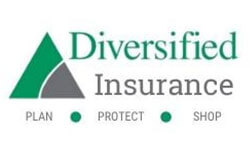Can You Use Life Insurance to Buy a House?
Table of Contents
Can You Use Life Insurance to Buy a House?
Securing a mortgage is a long-term commitment that often requires extensive financial planning. As you explore different options to finance your dream home, you may wonder if life insurance can play a role in the process. So, can you use life insurance to buy a house? The short answer is yes, but it’s important to understand the nuances involved.
Life insurance policies can provide individuals with a financial safety net in the event of their death, allowing their loved ones to cover expenses and debts. In some cases, the cash value accumulated in a permanent life insurance policy can be used to supplement the funds needed for a down payment or mortgage payments. However, it’s essential to consider the potential impact on your policy’s death benefit and consult with a financial advisor or insurance professional.
In this article, we’ll delve into the benefits and considerations of using life insurance to buy a house. We’ll explore different policy types, potential tax implications, and factors to consider before making this financial decision. Let’s unravel the possibilities and help you make an informed choice when it comes to using life insurance for homeownership.
Understanding Life Insurance and Its Purpose
Before we dive into the specifics of using life insurance to buy a house, let’s first understand what life insurance is and its primary purpose. Life insurance is a contract between an individual and an insurance company, where the individual pays regular premiums in exchange for a death benefit that is paid out to their beneficiaries upon their passing. The purpose of life insurance is to provide financial protection and support to loved ones in the event of the policyholder’s death.
Life insurance policies come in various forms, but the two main categories are term life insurance and permanent life insurance. Term life insurance provides coverage for a specific period, typically 10, 20, or 30 years, while permanent life insurance, such as whole life or universal life, provides coverage for the policyholder’s entire life. Permanent life insurance policies also accumulate cash value over time, which can be accessed if needed.
The Role of Life Insurance in Home Buying
Now that we have a basic understanding of life insurance, let’s explore how it can potentially be used to buy a house. While life insurance is primarily designed to provide financial protection to beneficiaries, the cash value component of permanent life insurance policies can offer additional flexibility.
If you have a permanent life insurance policy with accumulated cash value, you may be able to borrow against that value to supplement your funds for a down payment or mortgage payments. This can be especially useful if you’re facing financial challenges or if you want to take advantage of the potential tax advantages associated with life insurance.
However, it’s crucial to understand that borrowing against the cash value of your life insurance policy can impact the policy’s death benefit. The death benefit is the amount that will be paid out to your beneficiaries upon your passing. When you borrow against the cash value, the death benefit may be reduced by the outstanding loan amount. It’s important to weigh the potential benefits against the potential impact on your life insurance coverage.
Types of Life Insurance That Can Be Used for Home Buying
Not all life insurance policies are created equal when it comes to using them for home buying purposes. While both term life insurance and permanent life insurance can provide financial protection, only permanent life insurance policies accumulate cash value that can be accessed during your lifetime.
Whole life insurance and universal life insurance are types of permanent life insurance policies that typically offer cash value accumulation. Whole life insurance provides a guaranteed death benefit and a fixed premium, while universal life insurance offers more flexibility in premium payments and a variable death benefit. Both policies can be used to supplement the funds needed for a home purchase.
It’s important to note that term life insurance policies do not accumulate cash value, so they cannot be used in the same way as permanent life insurance policies. If you have a term life insurance policy, you may need to explore other options for financing your home purchase.
Benefits of Using Life Insurance to Buy a House
Using life insurance to buy a house can offer several advantages depending on your financial situation and goals. Here are some potential benefits to consider:
- Supplementing funds: If you have a permanent life insurance policy with accumulated cash value, borrowing against that value can provide an additional source of funds for a down payment or mortgage payments. This can be particularly helpful if you’re facing challenges in securing traditional financing or if you want to avoid depleting your savings.
- Potential tax advantages: The cash value in a permanent life insurance policy grows tax-deferred, meaning you won’t owe taxes on the growth until you withdraw the funds. By borrowing against the cash value instead of withdrawing it, you can potentially avoid immediate tax consequences. However, it’s important to consult with a tax professional to understand the specific tax implications in your situation.
- Flexibility and control: Using life insurance allows you to access funds without going through a traditional lender. This can provide more flexibility and control over the financing process, especially if you have unique circumstances or prefer to keep your financial matters private.
- Protection for loved ones: While using life insurance to buy a house may involve accessing the cash value, it’s important to consider the impact on the policy’s death benefit. The primary purpose of life insurance is to provide financial protection to your beneficiaries. Using life insurance to buy a house should not compromise the coverage you have in place for your loved ones.
Factors to Consider When Using Life Insurance for Home Buying
Before making the decision to use life insurance to buy a house, there are several factors to consider. Here are some key considerations:
- Impact on death benefit: Borrowing against the cash value of your life insurance policy can reduce the death benefit. It’s important to understand the potential impact on your coverage and ensure that your loved ones will still be adequately protected.
- Loan terms and interest rates: When borrowing against the cash value of your life insurance policy, it’s essential to review the loan terms and interest rates. Compare them to other financing options available to you to ensure that you’re getting the best possible terms.
- Repayment plans: Discuss repayment plans with your insurance professional or financial advisor. Understand the repayment terms, including interest rates and repayment schedules. Make sure you have a plan in place to repay the loan to avoid any potential negative consequences.
- Policy surrender or lapse risks: Borrowing against the cash value of your life insurance policy can increase the risk of policy surrender or lapse if the loan is not repaid. If the policy lapses, you may lose the death benefit and any accumulated cash value. It’s crucial to have a solid plan in place to repay the loan to avoid these risks.
Steps to Follow When Using Life Insurance to Buy a House
If you’ve decided to use life insurance to buy a house, here are some steps to follow:
- Review your policy: Carefully review your life insurance policy to determine if it has accumulated cash value that can be accessed. Contact your insurance company or agent to obtain the necessary information about your policy’s cash value and any borrowing options available.
- Consult with professionals: Seek guidance from a financial advisor or insurance professional who can help you understand the potential impact on your policy’s death benefit and provide insights into the loan terms and repayment options.
- Compare financing options: Evaluate the financing options available to you, including traditional mortgages, personal loans, and other alternatives. Compare the terms, interest rates, and potential benefits to determine the best approach for your specific situation.
- Develop a repayment plan: Work with your financial advisor or insurance professional to develop a repayment plan for the borrowed funds. Ensure that you have a clear understanding of the repayment terms, including interest rates and schedules.
- Monitor your policy: Stay vigilant and monitor your life insurance policy after borrowing against the cash value. Regularly review the outstanding loan amount, the impact on your policy’s death benefit, and any changes in your financial situation that may affect your ability to repay the loan.
Potential Drawbacks or Risks of Using Life Insurance for Home Buying
While using life insurance to buy a house can offer benefits, it’s crucial to be aware of the potential drawbacks and risks. Here are some considerations:
- Impact on coverage: Borrowing against the cash value of your life insurance policy can reduce the death benefit. If your primary goal is to provide financial protection to your loved ones, using life insurance for home buying should not compromise this coverage.
- Repayment challenges: Failing to repay the loan against your life insurance policy can result in policy surrender or lapse, leading to the loss of the death benefit and any accumulated cash value. Make sure you have a solid plan in place to repay the loan to avoid these risks.
- Missed investment opportunities: The cash value in a permanent life insurance policy can be an investment tool. By borrowing against the cash value, you may miss out on potential investment opportunities and growth.
- Potential tax consequences: While borrowing against the cash value of your life insurance policy can provide potential tax advantages, it’s important to consult with a tax professional to understand the specific implications in your situation. Improper handling of the loan or withdrawal can result in unexpected tax liabilities.
Alternatives to Using Life Insurance for Home Buying
If you’re unsure about using life insurance to buy a house or if it doesn’t align with your financial goals, there are alternative financing options to consider. Here are a few examples:
- Traditional mortgages: Explore traditional mortgage options offered by banks and financial institutions. These mortgages typically have clear terms, interest rates, and repayment schedules.
- Personal loans: Consider obtaining a personal loan to finance your home purchase. Personal loans can provide flexibility, but interest rates and repayment terms may vary depending on your creditworthiness.
- Assistance programs: Research government or nonprofit assistance programs that can help with down payments or provide grants or loans specifically for first-time homebuyers.
- Family and friends: If possible, consider reaching out to family or friends who may be willing to provide financial assistance for your home purchase. Be sure to formalize the arrangement and discuss repayment terms to avoid potential conflicts.
How to Determine If Using Life Insurance for Home Buying Is Right for You
Deciding whether to use life insurance to buy a house is a personal and complex financial decision. To determine if it’s the right choice for you, consider the following:
- Review your financial goals: Assess your short-term and long-term financial goals. Determine if using life insurance aligns with these goals and if it’s the best option for achieving them.
- Evaluate your insurance needs: Consider the primary purpose of life insurance, which is to provide financial protection to your loved ones. Evaluate whether using life insurance for home buying compromises this coverage or if there are alternative ways to finance your home purchase.
- Seek professional advice: Consult with a financial advisor or insurance professional who can provide guidance tailored to your specific situation. They can help you weigh the pros and cons and make an informed decision.
- Consider your risk tolerance: Assess your comfort level with borrowing against the cash value of your life insurance policy and the potential impact on your coverage. Evaluate the risks and rewards associated with using life insurance for home buying.
- Review other financing options: Explore alternative financing options and compare them to using life insurance. Consider the terms, interest rates, and potential benefits of each option.
Conclusion and Final Thoughts
Using life insurance to buy a house can be a viable option for those with permanent life insurance policies and accumulated cash value. It offers potential benefits such as supplementing funds, tax advantages, flexibility, and control. However, it’s important to carefully consider the impact on your policy’s death benefit, loan terms, repayment plans, and potential risks.
Before making a decision, review your policy, consult with professionals, compare financing options, develop a repayment plan, and monitor your policy. Take into account the potential drawbacks and risks associated with using life insurance for home buying. Alternatives to using life insurance, such as traditional mortgages, personal loans, assistance programs, or seeking financial assistance from family and friends, should also be considered.
Ultimately, the decision to use life insurance to buy a house should align with your financial goals, insurance needs, risk tolerance, and overall financial well-being. By carefully weighing the pros and cons and seeking professional advice, you can make an informed choice that best suits your unique circumstances.




